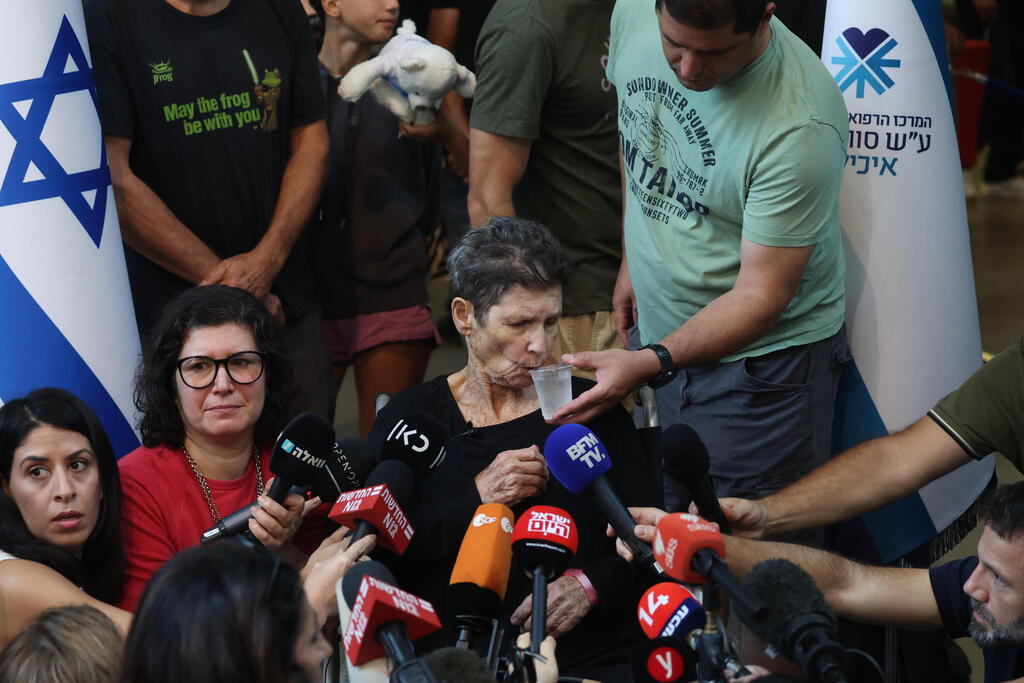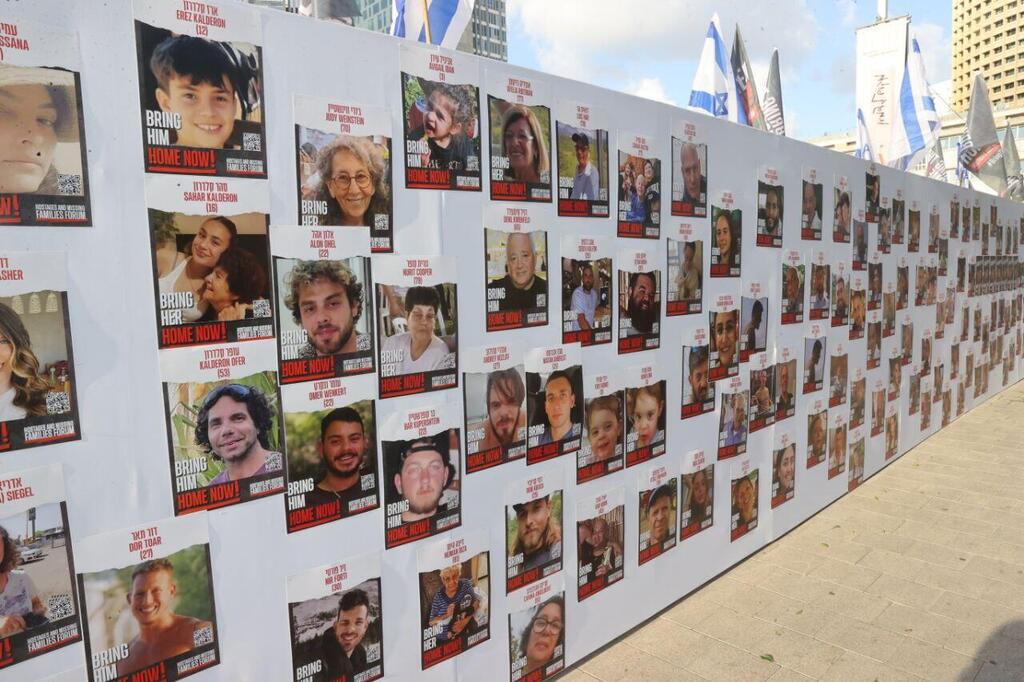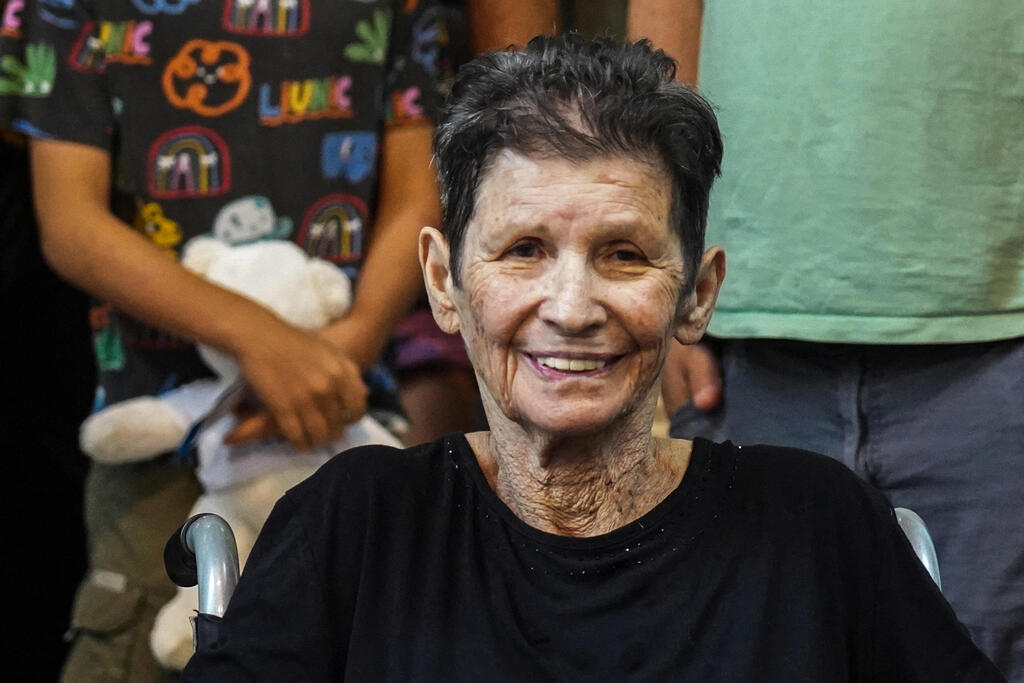The Ministry of Health decided on a protocol for receiving hostages if they are freed from captivity in Gaza. After 85-year old Yocheved lifshitz spoke freely to reporters about her ordeal, including her description of Hamas's preparations to fulfil personal needs and provide medical attention, the ministry said any hostages returned would be debreifed and cared for in a dedicated facility and away from cameras. The protocol emphasizes the importance of documenting any physical evidence that may serve as proof of war crimes.
Read more:
According to the procedure, "the compound will be off-limits to visitors and healthcare staff, except for the families of the abductees, security forces escorting them, and the medical personnel providing treatment. The aim is to minimize the number of individuals present in the compound, with priority given to women if feasible."
The procedure further asserts that "the director of the hospital or a designated representative holds the responsibility for restricting access to the compound. Utmost caution should be exercised to uphold privacy and maintain medical confidentiality when sharing information. In the event that a consultation with an external party, other than the hospital's medical staff, becomes necessary, an authorized hospital official will thoroughly document the personal information of the involved professional and the scope of the individual consultation."
Furthermore, it was indicated that once released, the abductees will have a meeting at the hospital with a social worker, preferably someone specializing in mental health. The purpose of this meeting is to assess the level of mental distress experienced by the individual, and based on that assessment, the social worker will recommend appropriate further mental intervention, either by a psychiatrist or psychologist, depending on the specific circumstances.
In cases where there is a suspicion of sexual abuse or torture during the abduction, the medical staff must be notified for additional investigation and treatment. It is crucial to handle the conversation and information sharing with sensitivity, allowing the individual to exercise choice and maintain control. If a professional examination in an "acute room" is deemed necessary, suitable arrangements will be made within the hospital, including the provision of a colposcope if required.
Upon the arrival of the released abductees at the hospital, an immediate initial examination will be conducted to rule out any urgent medical conditions that require immediate intervention. "Whenever possible, this examination will be conducted in the presence of a family member or an individual chosen by the patient, with their consent. The examination of the returned abductees will be conducted by a nurse and an emergency medicine specialist.
"For children, a pediatric emergency medicine specialist will also be involved. In the case of women, priority will be given to a female doctor and nurse. Based on the patient's medical history and physical examination, the doctor will determine whether further laboratory tests, imaging, or consultations are necessary at this stage to rule out any conditions that require immediate intervention, even before the family meeting. If it becomes necessary to take the abductee outside the designated compound during this stage, a family member can accompany them."
Fallout from the Sourasky Medical Center press conference
In light of the ongoing dispute between the Prime Minister's office and Sourasky Medical Center, as well as the criticism surrounding the press conference involving released abductee Yocheved Lifshitz, the Ministry of Health has developed a new procedure for the evacuation of abductees. The procedure, parts of which were released last night, outlines that the decision regarding which hospital will receive released hostages will be based on their medical condition and the proximity of the hospital to the point of release. As a result, it is possible that hospitals in Ashkelon and Be'er Sheva may receive a significant number of abductees in the future, particularly in instances where time is of the essence.
Another factor to consider will be the current capacity of the hospitals, as well as the method of evacuation (Ground or airlifting). Additionally, the availability of specialized medical staff at each hospital, such as pediatricians, gynecologists, and mental health professionals, will also be taken into account. These factors will serve as additional parameters in determining which hospital will receive the released abductees.
3 View gallery


Press conference exposed some issues about how to manage returned abductees
(Photo: EPA/ABIR SULTAN)
On Tuesday, the headquarters responsible for the abductees insisted on evacuating Yocheved Lifshitz and the other abductee, Nurit Cooper, to Sourasky Medical Center. This decision was made despite the Ministry of Health's directive to evacuate them to Soroka Medical Center in Be'er Sheva, primarily due to its close proximity to the location where the abductees crossed into Israel from the Gaza Strip.
Contrary to the prevailing belief in Israel that Lifshitz's testimony had detrimental effects, the headlines of British newspapers presented a different narrative. For instance, the Daily Express featured a photo of Lifshitz reaching out to the Hamas member who had released her, accompanied by the caption, "Peace gesture by freed hostage in the face of evil." Similarly, the Daily Mail published the same photo with the caption, "The hand of peace from Israeli hostage, 85, that shames Hamas killers."




